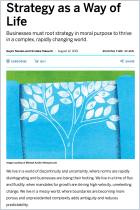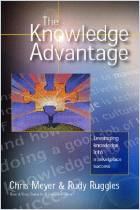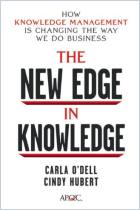Únase a getAbstract para acceder al resumen.

Únase a getAbstract para acceder al resumen.
Ikujiro Nonaka, Kazuo Ichijo and Georg Von Krogh
Enabling Knowledge Creation
How to Unlock the Mystery of Tacit Knowledge and Release the Power of Innovation
Oxford UP, 2000
¿De qué se trata?
Are you inadvertently stifling the creation of vision and knowledge in your company? If so, you are stifling profit as well.
Recommendation
Dust off those liberal arts degrees before opening this challenging treatise on knowledge management, written by a trio of academics who call themselves "constructionists," quote Sartre and speak passionately of "post-modernism." Their work explains how to gain initiative and constructive input from workers by modifying traditional command structures - a grounded approach that is much more realistic than the revolutionary conversions called for by other experts. Managers who balk at the thought of granting autonomy or increased access to their employees may well be converted away from their hierarchical dogma here. getAbstract particularly recommends the lively knowledge-creation case histories and the wonderful section explaining how companies can create valid, imaginative futures. (What if IBM had imagined a world in which software was more important than mainframes?)
Summary
About the Authors
Georg Von Krogh is Professor of Management and member of the board, the Institute of Management, University of St. Gallen, Switzerland. His consultancy clients include Hoffman La-Roche, PricewaterhouseCoopers, USB, and Unilever. Kazuo Ichijo is Associate Professor, Faculty of Social Sciences, Hitotsubashi University. Ikujiro Nonaka is Dean of the School of Knowledge Science at the Japan Advanced Institute of Science and Technology and is a chaired professor at the University of California, Berkeley, Haas School of Business.



















Comment on this summary